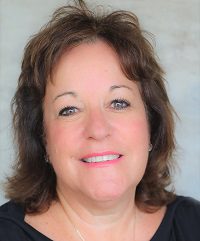Volume 35 Number 3 | June 2021
 Maddie Josephs, MS, MLS(ASCP)CM, ASCLS President
Maddie Josephs, MS, MLS(ASCP)CM, ASCLS President
Diversity and inclusivity initiatives have become more of a priority for many companies and professional organizations. Studies have shown that diversity leads to creativity and improved performance, leading to better decision making and problem solving. As such, diverse organizations tend to be more successful. Much has been done in this area, but there is still a lot of work to complete to ensure true diversity, equity, and inclusion.
Challenges still exist, and some of these challenges have thwarted efforts to increase diversity because even the mention of the word can lead to anxiety and discomfort. Much of this is rooted in the definition of diversity as it pertains to individual organizations. Consider diversity of race, creed, nationality, gender, sexual orientation … the list can go on. Yet, diversity is so much more than gender and race, etc.; it is also about the diversity of mindset.
Racially motivated crimes and events that our country has witnessed recently are inexcusable and, frankly, shameful. Attacks and biases against blacks, Hispanics, Asians, members of the LGBTQ community, and unfortunately many more, do not have a place in our society. We are better than this, and these events have served to highlight our shortcomings. Our beautiful country is a patchwork of culturally diverse individuals, and this diversity needs to be embraced. Our profession mirrors this diversity, and our professional Society should absolutely do the same.
This starts with education. Education is an important component and, as such, many companies and organizations have made it a priority to provide trainings and seminars to help us become conscious of our unconscious bias and ultimately address lack of diversity in our environment. Because these conversations can be uncomfortable, there is often resistance. This should not stop organizations from being intentional about bringing diversity into their communities, given the known benefits. Who is ultimately responsible for this? Well, we all know that change can be difficult, and while it may start at the top, it needs to be embraced at every level. The ASCLS Board of Directors has made a commitment to diversity and inclusion with the hope that this will lead to a culture of belonging, and for this, we are ALL accountable.
This year’s actions by the members of the ASCLS Diversity Advocacy Council (DAC), including their board and staff liaisons, initiated some important conversations and gave us much to consider. The inaugural PRISM: Pride · Respect · Inclusion · Support · Momentum virtual event in January was a success and inspiring, bringing great energy and igniting some important and difficult conversations. We look forward to this becoming an annual event to highlight diversity, address social disparities in healthcare, and help us acknowledge biases.
Perspective and ideas from a diverse group, when brought together and where information and opinions are shared, has a direct positive impact on outcomes. When an organization makes a concerted effort to increase diversity, it allows people to bring unique strengths and ideas to the table. ASCLS has begun the work, but our work is not done. This Society views diversity as a core value, and this statement appears on our Mission Statement webpage:
ASCLS is an inclusive, culturally relevant community of people acknowledging their differences and unique characteristics; it is an organization where all persons can engage and participate in a meaningful way empowering everyone to grow and learn.
It is an important statement, but it means nothing unless it leads to action. This is a sentiment that needs to be promulgated within our organization. It is necessary to be open-minded, embrace diversity, and acknowledge our biases. Diversity Advocate Verna Myers states that, “Biases are the stories we make up about people before we know who they really are.” Our goal should be to be aware and ensure that everyone feels included. Only then can we continue to grow and become a stronger Society, providing value that our members have come to appreciate.
Maddie Josephs is Chair of the Allied Health Department and Director of the MLT & Histotechnician Programs at the Community College of Rhode Island in Lincoln, Rhode Island.
 Maddie Josephs, MS, MLS(ASCP)CM, ASCLS President
Maddie Josephs, MS, MLS(ASCP)CM, ASCLS President